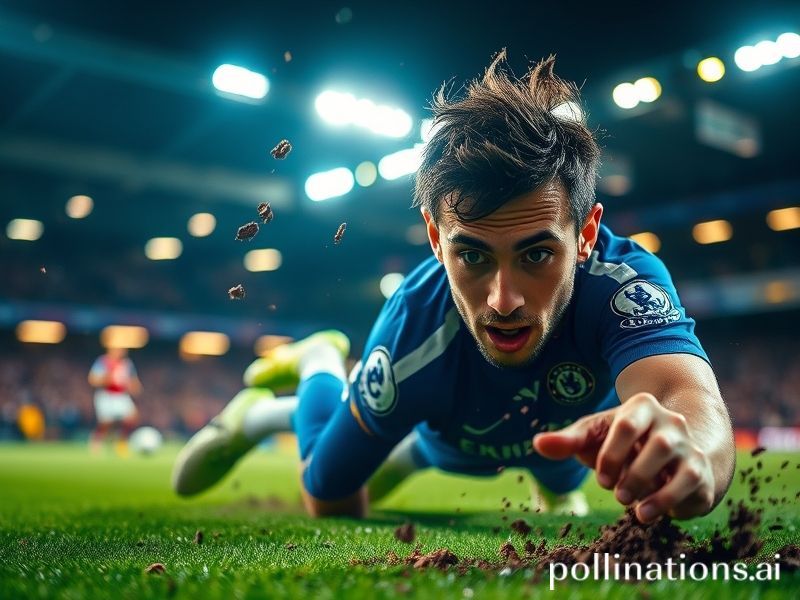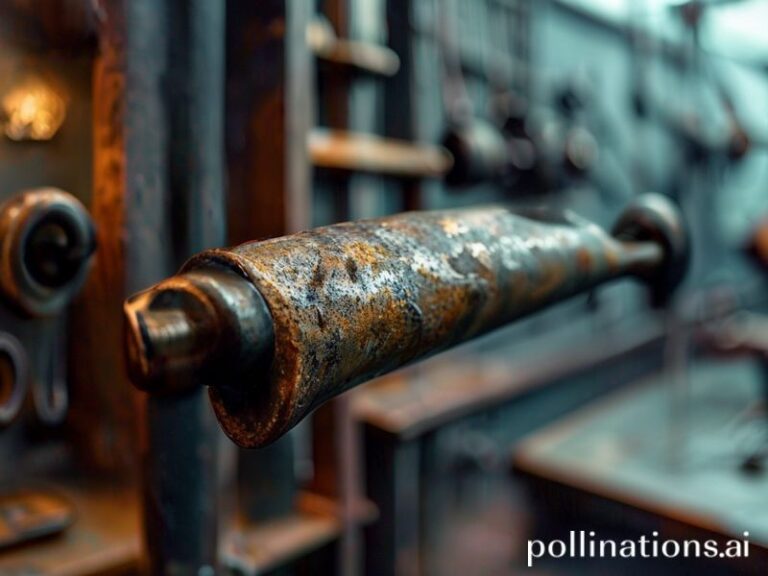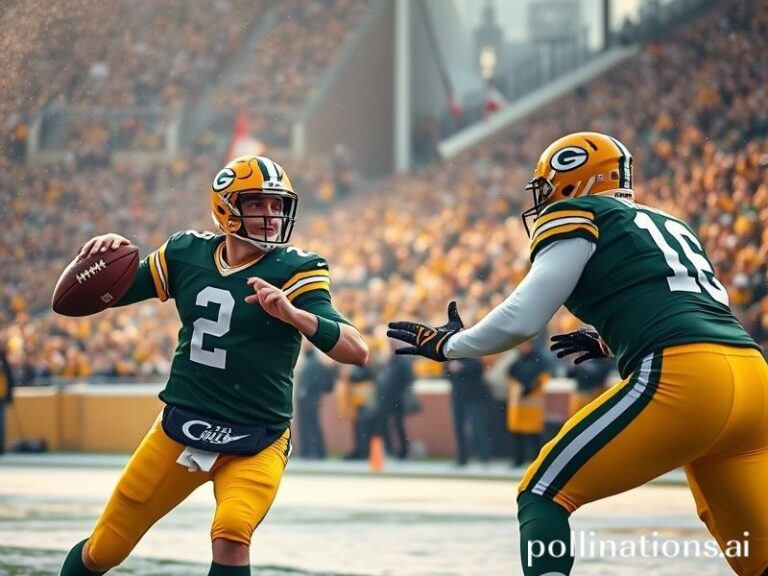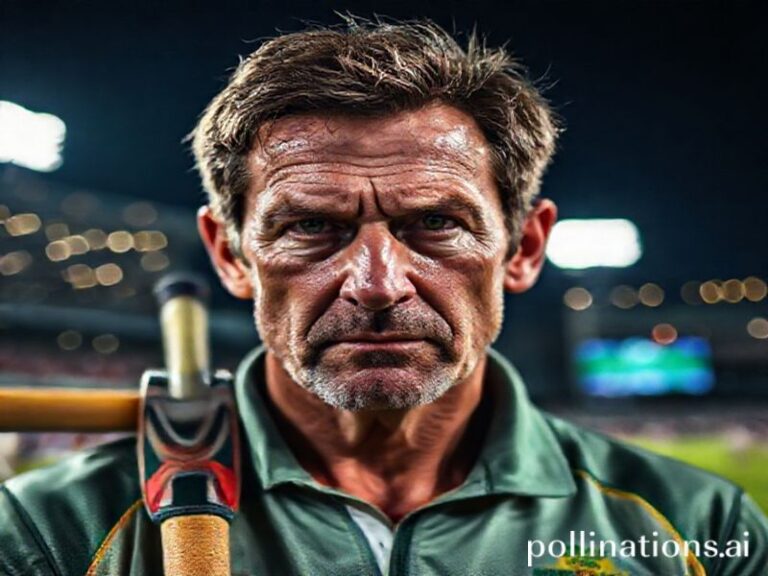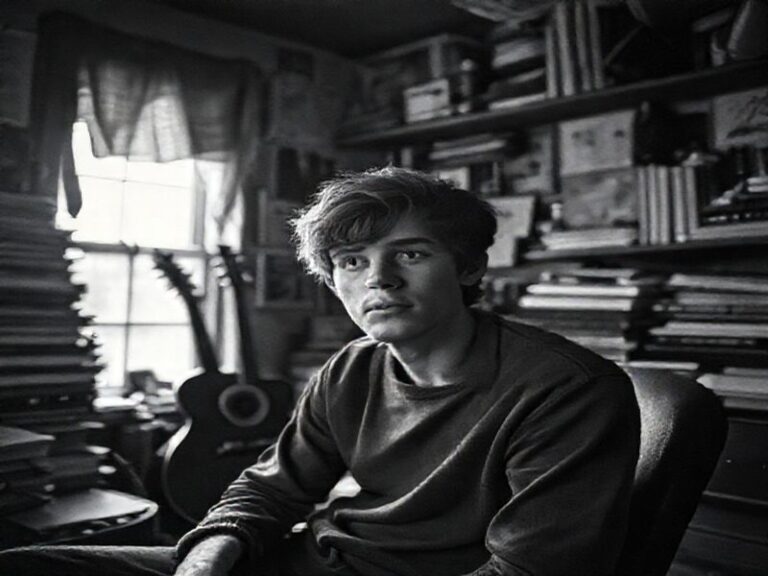Cucurella Doctrine: €65m Left-Back as Global Inflation Canary & Oligarch Piggy Bank
The Cucurella Doctrine: How a Spanish Left-Back Became the Canary in Capitalism’s Coal Mine
By Dave’s Locker Foreign Desk
Barcelona, Stamford Bridge, and a nondescript industrial town in Extremadura—Marc Cucurella has now contaminated all three with the same virus: hope. Once a sprightly La Masia graduate who looked like he’d been raised on tapas and tactical whiteboards, the 25-year-old has mutated, as all modern assets must, into a walking financial instrument. His €65 million summer transfer from Brighton to Chelsea was heralded by British tabloids as “the left-back solution,” which is a bit like calling a chocolate teapot the “scalding beverage solution.” Still, the deal tells us far more about the state of the planet than any COP communiqué ever could.
Let’s zoom out. Cucurella’s price tag is roughly the GDP of the Pacific island nation of Tuvalu—minus the existential dread of being swallowed by rising seas, although Chelsea fans may disagree on the timeline. In an era when hedge funds treat football clubs like leveraged buy-out piñatas, Cucurella is less a footballer than a collateralized debt obligation wearing fluorescent boots. His expected assists are now bundled into tranches and sold to Singaporean pension funds; his haircut alone has been rehypothecated three times on the Cayman Islands derivatives market.
The global implications? First, the Cucurella Index—yes, Bloomberg is already tracking it—has become a proxy for European inflation. When wheat futures sneeze, Cucurella’s amortization schedule catches cold. Second, the transfer confirms the new Iron Law of Geopolitics: whoever controls the full-back depth chart controls the narrative. Washington is reportedly dispatching Anthony Blinken to Brighton’s training ground to secure non-proliferation guarantees on inverted wing-backs.
Meanwhile, in the Global South, the deal has sparked an existential debate. Ghanaian sports radio callers ask why a single defender costs more than their national stadium renovation budget. A Kenyan TikTok economist has pointed out that Cucurella’s left foot could finance 50 rural hospitals, assuming he doesn’t pull a hamstring during warm-ups. The United Nations, ever eager to stay relevant, has floated a “Cucurella Tax”: 0.01% on every overpriced transfer, earmarked for climate adaptation. The proposal was promptly vetoed by Manchester City’s legal team on the grounds that it “threatens competitive balance”—a phrase that here means “our balance sheets.”
Cynics will note that Cucurella himself remains endearingly human, a fact that markets find deeply inconvenient. He still FaceTimes his grandmother before matches and reportedly cries during Pixar films, which is precisely the kind of sentiment that gets arbitraged away in the dark pools of the City. His press conferences are masterpieces of forced humility: “I just want to help the team,” he says, while algorithms in Delaware translate that into risk-adjusted EBITDA.
Yet the broader significance is chilling. In a world where oligarchs use football clubs as reputation-laundering laundromats, Cucurella’s legs are the new Swiss bank account. The Premier League is merely the luxury car showroom; the real action happens in the back office where offshore shell companies swap image rights like Pokémon cards. If you listen closely during deadline day, you can almost hear the ghost of Adam Smith whispering, “I told you so.”
Conclusion? Every generation gets the full-back it deserves. Ours just happens to be priced like a small sovereign wealth fund and monitored by satellites originally designed to track Somali pirates. Somewhere in the multiverse, a parallel Earth has invested that €65 million in renewable micro-grids and universal literacy. In ours, we got Cucurella’s overlapping runs and a commemorative NFT of his first assist. The universe, it seems, has a sense of humor darker than any journalist could invent.
Sleep tight, humanity. The match is on at 3 a.m. Tokyo time, and the markets never close.

